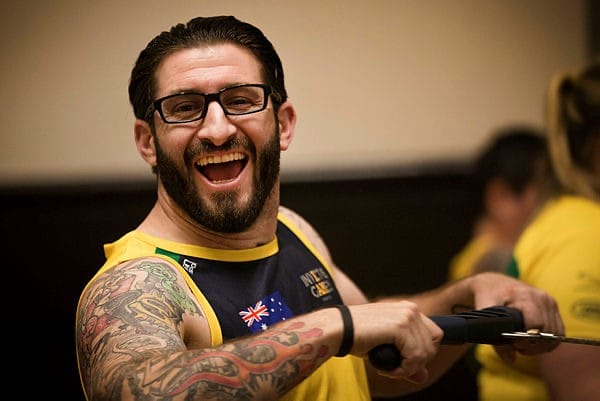Gary Wilson dropped out of high school in 1998 at 17 years of age, joined the army, and was subsequently deployed to East Timor and then Afghanistan – a deployment that changed the course of his life.
On 21 June 2010, a Black Hawk helicopter was crossing Northern Kandahar on a routine transportation flight when it crashed during its final approach to the landing zone into rugged Afghan terrain. Four men lost their lives that night, but Gary miraculously survived.
His brush with death was as close as they come, and it’s been a long, winding road to recovery for Gary. However, since his medical discharge, he made his next mission to show injured and ill serviced personnel that their injuries do not define them.
Gary now runs his own fitness and training business in Canberra called Bare Coaching and has been involved in the Invictus Games since 2017, rallying in support of his fellow injured veterans and their families.
A survival against all odds
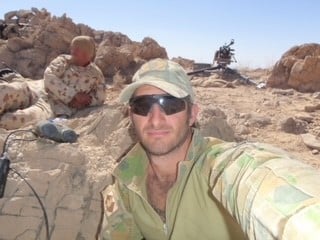
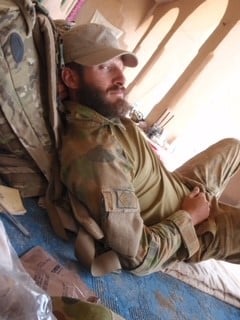
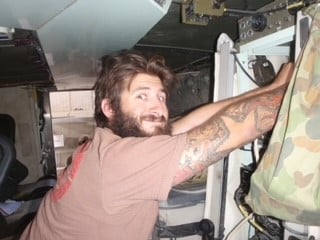
Describing fighting in the war in Afghanistan as “fun” may sound strange to a civilian, but Gary insists he and his fellow soldiers made the best of a bad situation by finding humour wherever they could.
“It’s hard to put into words. Being in Afghanistan I was like, ‘this is pretty intense.’ It was cold – it was their winter – just a very desolate place,” he says.
“It’s one of those things, being shot at, it reminds you you’re alive. It gets your heart racing; it gets the adrenaline going.
“If you look at other veterans, they love the adrenaline. You become addicted to it, and that’s why a lot of the guys they come back and get into fast activities because they’re chasing that adrenaline.”
On his first job in Afghanistan, one of his fellow soldiers was blown up by an Improvised Explosive Device (IED). In that moment, he had a realisation – he’s in an active warzone.
He says the enemy then started engaging. Rockets were flying over his head as his ran up a hill, and, if one of them had hit the ground, he wouldn’t be here today to share his story.
Being reminded you’re alive – that’s the fun part, he smiles.
“Even though there were rockets going over our heads, we had games, like stupid, childish games,” Gary says.
“That’s the Australian way; we make fun in the harshest of situations.”
The mission that almost cost Gary his life was meant to take four short hours. It was such a simple flight that he opted to call his then girlfriend, now wife Renee Wilson, when he got back instead of before he left.
Around five minutes before this helicopter was supposed to land, the pilot would start to lower towards the ground. They didn’t know how low they were at the time, and the pilot smashed into the ground, going from 210km/h to zero in just 100 metres – how quickly something can go horribly wrong.
“My last memory was running past the phone thinking about calling Renee and the next memory is three months later,” says Gary.
He details the fates of the other soldiers on the helicopter – some were killed instantly on impact, some survived like him with serious injuries, and some later passed away. Relaying every man’s name and rank with the utmost respect, the trauma of the night from hell is something no person could forget.


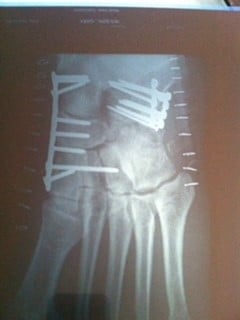
Gary was found buried the wreckage with one arm and one leg kicking because his whole left side was crushed, and his injuries pertained to his entire body, from top to bottom.
“I crushed almost my entire left foot, my left knee, my left hip, two left ribs, my left ulna was snapped. Then I had boxer’s fractures on my knuckles and fingers, third degree burns, I broke my upper jaw, I snapped my tooth in half…,” says Gary.
He had severe traumatic brain injuries similar to Shaken Baby Syndrome where his brain tumbled around in his skull.
Evacuated from the crash site to hospital where he was stablised, he was flown to a U.S. military hospital in Germany the next day, then to Westmead Hospital in Sydney, and finally to a rehab hospital in Hornsby.
He was expected to have died in Germany, where his mum and Renee flew to be by his bedside, and it was touch and go for a few weeks – his temperature was half a degree away from being pronounced brain dead at one point.
“I woke up in the dark of night in Hornsby. I was tied down to a chair because the nurses had me out of bed, my catheter must have leaked or something and so they were remaking the bed, and I heard people moving behind me and my brain kicked, that’s when my memory started,” says Gary.
“The last thing I knew I was in Afghanistan. Now all of a sudden, I have no clothes on, I’m tied to a chair and there were people behind me I couldn’t understand. So, I got up, undid my equipment, and tried to run but one side of my body worked, and the other side didn’t work at all.”
Gary’s brain injury was on the right side of his brain, affecting motor skills on the left side of his body, which stopped him from running that night. Not to mention the array of breaks and burns across his body, which he says, “added insult to injury”. He attempted to break his fall, which is when he realised his arm was stuck to his chest – as he woke up from his coma his left arm had contracted and seized.
A young nurse was able to pick him up off the ground and put him back into bed herself, because he now weighed 50 kilograms.
Over the next six months, Gary had to learn how to walk, talk, and use his left arm again.
A global community of wounded soldiers and an army matinee
Since Gary was no longer fit for deployment, he was discharged for the army, which left him wondering where he now fit in the world.
At the same time, the Australian Defence Force was putting on a play that toured the country, so he signed up and became ‘Zach’ in the stage show.
The play was about the struggles of reintegrating into society after serving in combat, something Gary knew all too well.
While connecting with other wounded veterans through the play, Gary was introduced to the Invictus Games. Since he couldn’t run, his mate suggested he try rowing.
“So, I got into the rowing and got ready to go to Orlando in 2016 and realised this is awesome,” smiles Gary.
“To realise we had a whole global community of wounded soldiers, and how the benefits of sport and exercise help with mental health and physical health, and finding your way of continuing to serve and represent your country… the bug got me.”
After competing in the Invictus Games, Gary’s zest for life reignited, and he was trying to work out what to do with it.
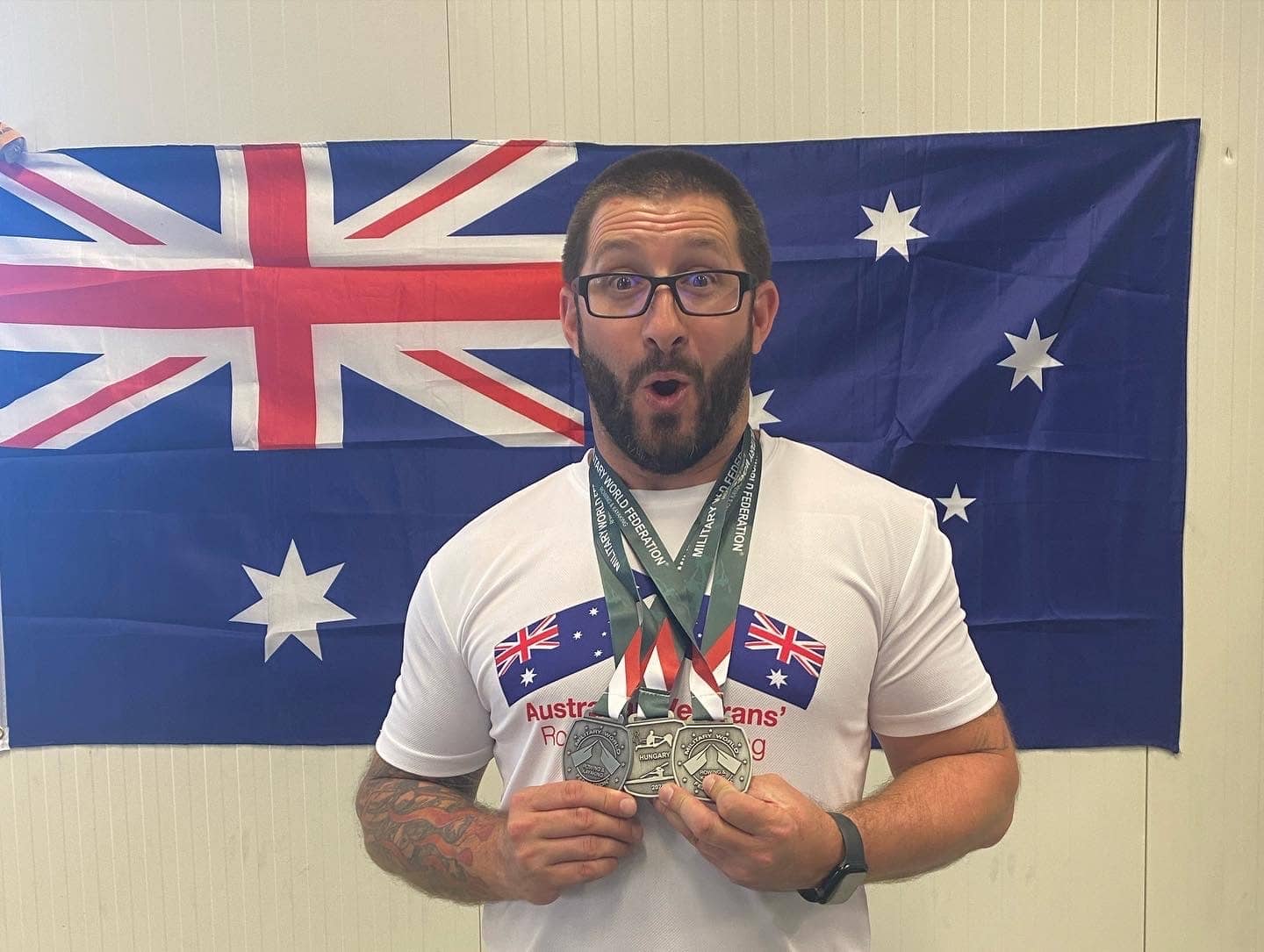
Being unable to serve in the Army anymore plus not being able to work a normal job, had taken a toll on his mental health; he figured exercise was the way to go.
“So now I’m a personal trainer. I can train clients and show them with my resilience and my story that what happened to me doesn’t define me, and that’s what I’m trying to pass onto other people – that what happened to you doesn’t define you,” says Gary.
“Every day can count. The sun always comes up.”
His company, Bare Coaching, isn’t just for wounded soldiers; he says everyone is welcome – he just wants to help people get fitter, healthier, and with a better mindset.
He hasn’t just had a second chance at life, he’s had third and fourth chances, and says that’s why he’s happy all the time. He just wants to live and appreciate his life.
Gary will be at the next Invictus Australia Defence Community Sport Day on Saturday 5 November 11am-3pm at a stand with his rowing machines, and he’s keen to give everyone a go.
Get all the latest Canberra news, sport, entertainment, lifestyle, competitions and more delivered straight to your inbox with the Canberra Daily Daily Newsletter. Sign up here.

